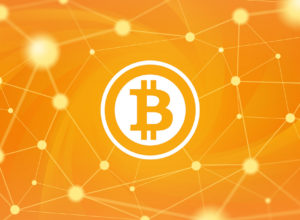Tag: Uber
M&A as a Fuel to Innovation
Sriram Prakash, the Global Lead for Innovation M&A and Venturing Services at Deloitte was one of the speakers at Webit.Festival Investments Summit who shared his insight about fueling growth through innovation M&A.
Living in an economy of expectations
An innovation can come from anywhere.It can come from a small unknown town in India, it can come from a booming city like New York, it can come from anywhere. If you want to turn your innovation into a billion dollar business though, you need some extra things than the idea itself. You need an ecosystem, you need entrepreneurs and corporates, you need the governments and different policy makers. And in fact, there are very few cities and ecosystems allowing you to do that but this doesn’t mean that your ideas can’t travel. Ideas have no boundaries anymore and that’s become quite an advantage for all market players. Markets are full of uncertainty today, they are getting saturated and there’s a backlash against globalization. For the past three years revenue growth rates has been on the decline but the share price are on the rise. That’s why innovation has become such a strong priority for companies to grow. Mergers & acquisitions is one of the ways for companies to tap into innovations happening outside of their private ecosystem rather than trying to focus on purely growing organically.More and more non-technological companies are investing in and acquiring tech companies
This means that a nowadays startup has the option of not just one but more exits and more than one sectors that could be interested in its particular innovation. The process is not one-way only. It’s not only old companies trying to go into digital. Startup companies are also buying some old style companies depending on their needs. Most of the disruptors under the scope of corporates are AI, Robotics, Big Data, Analytics and IoT, finally coming to a stage where the commercial potential can be realised. Venture capital & investment companies trying to get their way through the field should be better in the way of trying to find what people want rather than trying to invent the next Facebook or Uber. The biggest battle is for the future of consumers and the consumer industry as changing as it is. Companies of different sectors are merging and acquiring others out of their area of business and specialization. We see healthcare industry mixing with Fintech, IoT with Data and all together. For the first time there’s a genuine convergence between non-traditional sectors converging around a particular opportunity.Bitcoin influenced the way payments are changing
The area of payments has never been so interesting before. In the recent years, more has happened in the area than ever before. All of this is because of the mobile phones and the Internet. The biggest change in the area has been the change of the ecosystem. With the raise of new big and small players in the mobile industry, the payments area has grown bigger and bigger. Another factor for this progress is the fact that retail and customers are ready to try to use new ways of payment, like contactless payments and some mobile paying systems, like Uber. Bitcoin and other cryptocurrencies have also influenced the way payments are changing.
A big factor for payments is regulation. The regulation coming from Europe has changed everything, leaving companies like Visa on the look for new ways to solve the problems that arise. This, combined with other factors, has led to the creation and spread of digital payments and digital currencies. It has also helped the development of mobile payments and other simpler, smarter and more secure solutions.
We have got to a point where paying with card is not more expensive than paying with cash, and are now seeing how more and more businesses start accepting cards as a way of paying. Technologies like contactless have enabled whole cities like London to run their transport system without the need of cash. Another big thing that has changed is the online check-out experience. We see new mobile wallets coming in, and the security getting better and better. The development in the whole area is driven mainly by the needs of the costumer for better experience better security and ease of use.
An important issue that has to be resolved is payments getting in the way of buying. That happens when, in order to purchase something, the costumer needs to go through a hassle to make the payment. We also need to find a balance between security, collecting data and ease of use. We want to receive as much data as possible from every payment, without exposing any sensible data and without forcing the consumer to use an obstructive technology.
Digital technology has not only changed the commerce value chain, but it has also introduced new parts to it, creating new solutions for the problems we have, but also new problems that need to be solved. Big players like Facebook, can actually have influence over the whole payment system we are seeing. In addition, digital payments make it easier for companies to tailor their offers to each consumer.
"The biggest and most used system for payments of course is Visa. The company has over 500 million cards and 15% of all the money that goes around Europe goes through a Visa card. Bulgaria has one of the lowest usage on Visa in Europe – just one out of every twenty euros is paid via Visa. But how that such a big company react to all the changes that arise? They have changed their whole investment portfolio, betting more on partnerships with new players, and less on long-term investments. Visa is working closely with many banks and big currencies in order to completely eliminate cash as a form of payment, making it easier than ever for everyone to pay for the things they want and get better and better offers", said at CEEDS'15 in April Krassimira Raycheva - Country Lead Bulgaria, Visa Europe.

